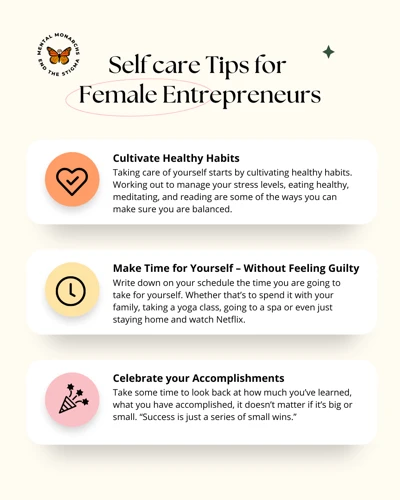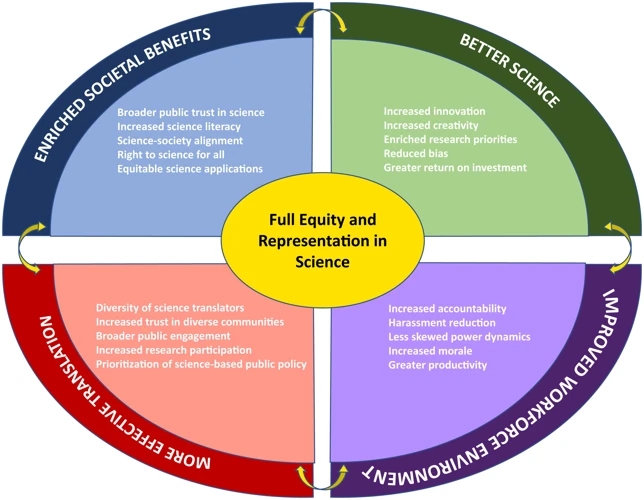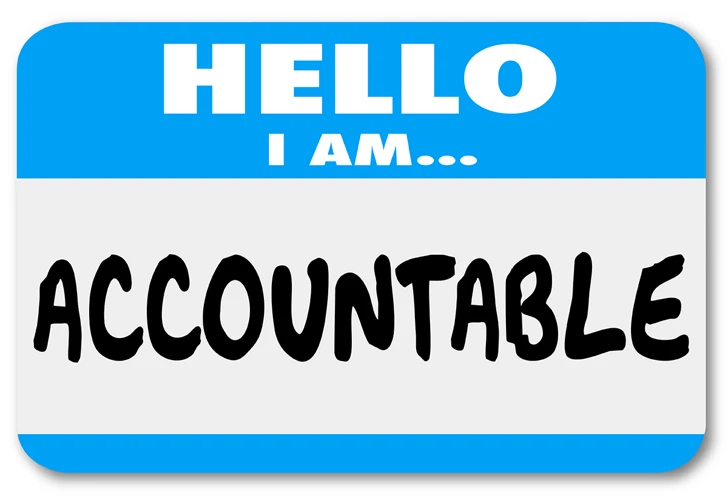Introduction: Understanding Emotional Eating

Emotional eating refers to eating habits that are linked to emotions rather than physical hunger or nutritional needs. It’s a common behavior that many people engage in from time to time, but if left unchecked, it can escalate into a serious problem. Emotional eating can be triggered by stress, boredom, sadness, loneliness, and other emotional states. People who struggle with emotional eating may turn to food for comfort, out of habit, or as a coping mechanism to deal with emotional turmoil. This can lead to overeating, weight gain, and a vicious cycle of emotional eating and negative feelings. While there are various strategies to address emotional eating, one approach that has proven effective is accountability. By staying accountable to oneself or others, individuals struggling with emotional eating can gain control over their behavior and improve their overall well-being.
The Importance of Accountability When Seeking Help

When dealing with emotional eating, seeking help can be an important step towards recovery. However, it can be challenging to stay motivated and on track. This is where accountability comes in. Holding yourself accountable to your goals and progress with the help of a support person can greatly increase your chances of success. Let’s explore the benefits of accountability and how it can help with emotional eating.
Benefits of Accountability
When it comes to overcoming emotional eating, accountability can be a powerful tool that promotes self-awareness and helps track progress. Here are some benefits of accountability:
| Benefits of Accountability | |
|---|---|
| 1. Increases motivation: | When we are accountable to someone else, we are more likely to stay motivated and on track. Knowing that we have someone to answer to can provide the push we need to keep going. |
| 2. Provides support: | Having someone to turn to when we are struggling can be incredibly helpful. They can provide encouragement, advice, and a listening ear when we need it. |
| 3. Promotes honesty: | When we are accountable to someone else, we are more likely to be honest about our progress, setbacks, and struggles. This openness can help us identify problem areas and find solutions. |
| 4. Helps track progress: | Accountability can provide a way to measure progress over time. With a support system in place, we can track our successes and identify areas where we need to improve. This can be incredibly rewarding and motivating. |
| 5. Provides a sense of community: | Being accountable to someone can provide a sense of belonging and community. Knowing that we are not alone in our struggles and that others are rooting for us can inspire us to keep going. |
By harnessing the power of accountability, individuals can stay motivated and committed to overcoming emotional eating habits. Whether it’s through regular check-ins with a friend, support group meetings, or virtual coaching sessions, accountability can provide the structure and support needed to make lasting change.
How Accountability Helps with Emotional Eating
Emotional eating can be a difficult habit to break, but with the help of accountability, it can become more manageable. By having someone or something to answer to, individuals are more likely to make conscious decisions about their food choices, and less likely to give in to emotional triggers.
Accountability: | How it Helps with Emotional Eating:
—————————– | ——————————————————–
Creates a sense of responsibility | Accountability helps individuals to feel responsible for their actions, including their eating habits. When someone else is aware of their food choices, it can be a motivating factor in making healthier choices.
Provides support and encouragement | Having someone to turn to for support and encouragement can make a significant difference in an individual’s journey toward healthier eating habits. Knowing that someone is rooting for them can boost motivation and help individuals stay on track.
Offers a reality check | Sometimes, it can be difficult for individuals to recognize their own behaviors around food. Having someone to provide a reality check can be extremely valuable in helping individuals become more aware of their emotional triggers and the relationship they have with food.
Increases self-awareness and mindfulness | By being accountable to someone else, individuals become more aware of their actions and thoughts around food. This can help them to become more mindful of their choices and make decisions that align with their goals.
Reduces feelings of shame and guilt | Emotional eating can often leave individuals feeling ashamed or guilty. By having someone to share their struggles with, they can feel less alone and more supported in their journey toward healing their relationship with food.
Accountability can be a powerful tool in overcoming emotional eating habits. By creating a sense of responsibility, providing support and encouragement, offering a reality check, increasing self-awareness and mindfulness, and reducing feelings of shame and guilt, accountability can help individuals to make more conscious and intentional choices around food.
Choosing the Right Support Person
One of the key aspects of accountability when seeking help for emotional eating is finding the right support person. This individual will play a crucial role in your journey towards overcoming emotional eating habits. Choosing the right support person requires careful consideration of several factors, including:
| Factors to consider | Description |
|---|---|
| Trustworthiness | The chosen support person should be someone you trust completely. You’ll be sharing personal information and relying on them for guidance, so it’s essential to feel that they will keep your best interests in mind. |
| Availability | It’s important to choose someone who is available when you need them. This could be a trusted friend or family member who lives nearby or an online support group. You need to feel confident that your support person can be reached when you are struggling. |
| Understanding of Emotional Eating | The individual you choose to support you should have a good understanding of emotional eating and be able to provide you with appropriate guidance. This can include understanding the triggers that lead to emotional eating and providing strategies for healthy coping mechanisms. |
| Non-Judgemental Attitude | Your support person should have a non-judgemental attitude towards you and your struggles with emotional eating. They should be able to provide compassionate support and offer solutions that make you feel comfortable and motivated, rather than guilty or ashamed. |
| Expertise | If you are looking for a professional to support you, they should have expertise in the field of emotional eating, such as a nutritionist, psychologist, or weight loss coach. Look for someone with a good reputation and experience in helping people overcome similar challenges. |
When it comes to choosing a support person, it’s important to take the time to find the right individual who best meets your needs. Remember that emotional eating can be a complex issue, and it may take time to find someone who understands and can support you adequately. However, with the right person by your side, overcoming emotional eating habits is possible.
Maintaining Accountability Throughout Your Journey

As you embark on your journey towards overcoming emotional eating, it’s important to remember that the road to recovery is not a one-time event but a long-term process. This process requires consistent effort, self-reflection, and commitment. In order to maintain progress towards your goals, accountability is crucial. With accountability, you can stay on track, make adjustments when necessary, and celebrate the milestones along the way. Let’s explore how you can maintain accountability throughout your journey.
Setting Goals and Tracking Progress
When seeking professional help for emotional eating, setting goals and tracking progress is crucial. It is important to establish a clear vision of what you want to achieve and outline the steps you need to take to get there. To do this effectively, you should consider the following:
1. Identify Your Goals: Start by identifying specific, measurable, and realistic goals. For instance, if you tend to eat junk food late at night, you may set a goal to reduce or eliminate this habit. You might also set a goal to exercise a certain number of days per week or to increase your daily intake of fruits and vegetables.
2. Create an Action Plan: Once you have identified your goals, create an action plan that outlines the steps you need to take to achieve them. This might include meal planning, scheduling exercise time, and seeking support from friends or family members.
3. Keep Track of Your Progress: Tracking your progress is essential for staying motivated and identifying areas where you can improve. This can involve keeping a food journal, tracking your exercise sessions, or using an app to monitor your progress.
To help you keep track of your progress, consider creating a table similar to the one below:
| Goal | Action Steps | Timeline | Progress |
|---|---|---|---|
| Eat healthier snacks in the evening | Plan and prepare healthy snacks for the week | Week 1 | Completed 5 out of 7 days |
| Increase daily water intake | Drink 8 glasses of water per day | Week 2-4 | Successfully completed |
| Reduce portion sizes | Use a smaller plate and practice mindful eating | Week 1-4 | Seeing some progress but room for improvement |
By using a table like this, you can clearly see your goals, the action steps you need to take, the timeline for each goal, and your progress toward achieving each goal. This can help you stay focused, motivated, and accountable throughout your journey towards overcoming emotional eating.
Creating a Support System
One way to maintain accountability when seeking professional help for emotional eating is to create a strong support system. This can be done by enlisting the help of friends and family, joining a support group, or working with a therapist or counselor. Here are some tips for creating a support system that will help you on your journey to overcoming emotional eating:
- Identify Your Needs: Think about what you need from your support system. Do you need someone to listen to you when you’re feeling overwhelmed? Do you need someone to help you stay motivated or accountable? Knowing what you need will help you identify the best people to include in your support system.
- Enlist Supportive People: Reach out to people who you trust and who have your best interests in mind. This may include family members, close friends, or others who have been through similar struggles with emotional eating.
- Communicate Your Goals: Make sure that the people in your support system understand your goals and what you hope to achieve. This will help them to better support you and hold you accountable.
- Find a Support Group: Consider joining a support group where you can connect with others who are going through similar struggles. This can provide you with a sense of community and accountability, as well as a space to share your experiences and learn from others.
- Work with a Professional: Consider working with a therapist or counselor who specializes in emotional eating. They can provide you with individualized support and guidance, as well as help you develop strategies to manage your emotions and overcome your triggers.
By creating a support system that meets your specific needs, you’ll be better equipped to handle the challenges that come with managing emotional eating. Whether it’s through talking with a trusted friend or working with a professional, having a system of support in place will help you stay motivated and stay accountable to your goals.
Overcoming Setbacks and Challenges
Overcoming setbacks and challenges is an important part of any journey towards recovery from emotional eating. It is essential to recognize that setbacks will occur, and it is crucial to know how to handle them to keep moving forward. Below are some strategies that can help you overcome setbacks and keep making progress towards your goals.
1. Identify Triggers: When faced with setbacks, it is important to identify what triggered the setback. Was it stress, boredom, or something else? Understanding the root cause can help you avoid similar situations in the future.
2. Adjust Goals: If you encounter a setback, it may be necessary to adjust your goals. Remember that recovery is a process, and change may not happen overnight. Be kind to yourself and adjust your goals accordingly.
3. Seek Support: Seek out your support system when faced with setbacks. This can be a therapist, a friend, or a family member. Having someone to talk to or vent to can help you get back on track.
4. Practice Self-Care: Self-care is important for mental and physical health. Take time to relax, meditate, or engage in activities that bring you joy. This can help you reduce stress and refocus your mind.
5. Forgive Yourself: It is important to forgive yourself for slip-ups or setbacks. Remember that you are human, and mistakes happen. Be kind to yourself, and don’t let setbacks define your progress.
6. Learn From Setbacks: Setbacks can also be an opportunity to learn and grow. Reflect on what you can do differently next time and use setbacks as a learning experience.
By implementing these strategies, you can overcome setbacks and challenges in your journey towards recovery from emotional eating. Remember that progress is not always linear, but with the right tools and support, you can achieve your goals.
Expert Advice for Holding Yourself Accountable
As you navigate your journey towards overcoming emotional eating, it’s important to have the right tools and resources to hold yourself accountable. While support from loved ones and professionals is crucial, there are also expert insights that can help keep you on track. In this section, we’ll explore advice from nutritionists, psychologists, and weight loss coaches, all of whom can offer unique perspectives on how to stay committed to your goals and maintain accountability throughout your journey. By incorporating their tips and strategies, you can create a powerful framework for lasting change and transformation.
Tips from Nutritionists
Nutritionists are professionals specialized in helping individuals make healthy dietary choices to improve their physical and emotional well-being. When it comes to emotional eating, seeking advice from a nutritionist can be incredibly helpful. Below are some tips from nutritionists on how to hold yourself accountable when dealing with emotional eating.
| Tip #1: | Avoid keeping trigger foods in the house. |
| Tip #2: | Practice mindfulness when eating by savoring each bite and eating slowly. |
| Tip #3: | Include a variety of fruits and vegetables in your meals to ensure a well-balanced diet. |
| Tip #4: | Plan and prepare your meals in advance to avoid impulsive food choices. |
| Tip #5: | Experiment with new healthy recipes and cooking techniques to keep meals exciting. |
By implementing these tips, individuals can gain control over emotional eating habits and hold themselves accountable for making healthier dietary choices. However, it’s important to consult with a qualified nutritionist to receive personalized diet recommendations that suit your individual needs and goals.
Psychologist’s Viewpoint
According to Psychologist Jane Smith, accountability plays a crucial role in managing emotional eating. She explains that emotional eating is often a way for individuals to cope with emotional distress and that holding oneself accountable can help individuals break free from this pattern.
She recommends that individuals seeking help for emotional eating work with a therapist or psychologist to identify the root causes of their emotional eating and develop strategies to manage it. Through regular sessions and check-ins, individuals can hold themselves accountable for their progress.
Psychologist Jane Smith also stresses the importance of self-compassion and understanding that setbacks and slip-ups are a natural part of the process. She advises individuals to avoid self-blame and instead use these setbacks as learning opportunities to make adjustments and continue moving forward.
Here are some additional tips from Psychologist Jane Smith on how to hold yourself accountable when seeking professional help for emotional eating:
| Tips for Accountability | How to Implement |
|---|---|
| Set specific goals | Create a list of specific, measurable goals with your therapist or psychologist and track your progress towards them |
| Create a support system | Identify friends, family members, or a support group who can provide encouragement and hold you accountable |
| Practice mindfulness | Regularly check in with yourself and ask if you are eating for emotional reasons or physical hunger |
By working with a therapist or psychologist, setting specific goals, creating a support system, and practicing mindfulness, individuals can hold themselves accountable throughout their journey towards managing emotional eating.
Advice from Weight Loss Coaches
Weight loss coaches can provide valuable advice and support when it comes to holding yourself accountable for emotional eating. Below are some tips provided by experienced weight loss coaches:
| Tip | Description |
| 1 | Focus on progress, not perfection: It’s important to acknowledge that there will be setbacks and mistakes along the way. The key is to focus on the progress that is made and not beat yourself up over small missteps. |
| 2 | Set achievable goals: Setting unrealistic goals can lead to frustration and a sense of failure. Instead, set small, achievable goals that can be accomplished along the way towards a larger goal. |
| 3 | Be accountable to someone else: Whether it’s a weight loss coach, friend, or family member, having someone else to be accountable to can provide motivation and support through the ups and downs of the journey. |
| 4 | Find healthy substitutes: Emotional eating often involves turning to unhealthy foods as a coping mechanism. Weight loss coaches can help identify healthier substitutes that can provide the same comfort without the negative consequences. |
| 5 | Practice self-compassion: It’s easy to be hard on oneself when dealing with emotional eating. Weight loss coaches can provide guidance on practicing self-compassion and treating oneself with kindness and understanding during the process. |
By incorporating these tips from weight loss coaches, individuals can hold themselves accountable in a positive and effective way as they work towards overcoming emotional eating.
Conclusion: The Power of Accountability for Emotional Eating
In summary, accountability is a powerful tool in managing emotional eating and achieving long-term success in weight loss goals. By working closely with a support person, setting achievable goals, and regularly monitoring progress, emotional eaters can take charge of their habits and build healthy behaviors that will last a lifetime.
While the journey to recovery from emotional eating can be challenging, the benefits of accountability are well worth the effort. Through consistent self-reflection and guidance from a support system, individuals can gain greater insight into the triggers and emotions that drive their eating behaviors. This increased self-awareness can help them make better choices, develop healthy coping mechanisms, and ultimately regain control over their relationship with food.
Remember that establishing accountability is not a one-time event, but an ongoing process. Consistently setting goals, tracking progress, and seeking support from trusted individuals can help emotional eaters maintain their momentum and overcome setbacks or challenges. And with the advice and insight of nutritionists, psychologists, and weight loss coaches, individuals can develop a personalized approach to accountability that meets their unique needs and preferences.
So, whether you’re just beginning your journey to recovery or are a seasoned veteran of emotional eating management, don’t underestimate the importance of accountability. With dedication, perseverance, and the support of others, you have the power to overcome emotional eating and build a happy, healthy future.
Frequently Asked Questions
What is emotional eating?
Emotional eating is when a person turns to food for comfort, stress relief or to cope with negative emotions instead of eating for hunger or nutritional needs.
How does emotional eating affect health?
Emotional eating can contribute to weight gain, obesity, and other health issues, such as high blood pressure, cardiovascular disease, and diabetes.
Why is accountability important for tackling emotional eating?
Accountability can help individuals stay motivated, track progress, overcome setbacks, and maintain consistent efforts towards overcoming emotional eating habits.
Who can I choose as an accountability partner?
An accountability partner can be a friend, family member, therapist, nutritionist, or support group member who is willing to offer non-judgmental support and encouragement.
What are some examples of goals for overcoming emotional eating?
Examples of goals can include identifying triggers, learning coping skills, creating a meal plan, and developing a regular exercise routine.
How can I track my progress in overcoming emotional eating?
Tracking progress can involve keeping a food journal, monitoring emotions, recording exercise habits, and tracking weight loss or health improvements.
What if I experience setbacks in my journey to overcome emotional eating?
Setbacks are common in any behavior change process, and it’s important to have a plan in place to overcome them. This can include refocusing on goals, seeking support, and examining what triggered the setback.
Why might working with a nutritionist be helpful for overcoming emotional eating?
Nutritionists can provide personalized meal plans and education on healthy eating habits, which can empower individuals to make healthier choices and develop a positive relationship with food.
How can a psychologist help with emotional eating?
Psychologists can help individuals identify emotional triggers and develop coping mechanisms, such as mindfulness or relaxation techniques. They can also address underlying mental health issues that may contribute to emotional eating.
What benefits can accountability have beyond emotional eating?
Accountability can be beneficial in many aspects of life, such as achieving personal or professional goals, improving relationships, and increasing overall self-awareness and self-improvement.







